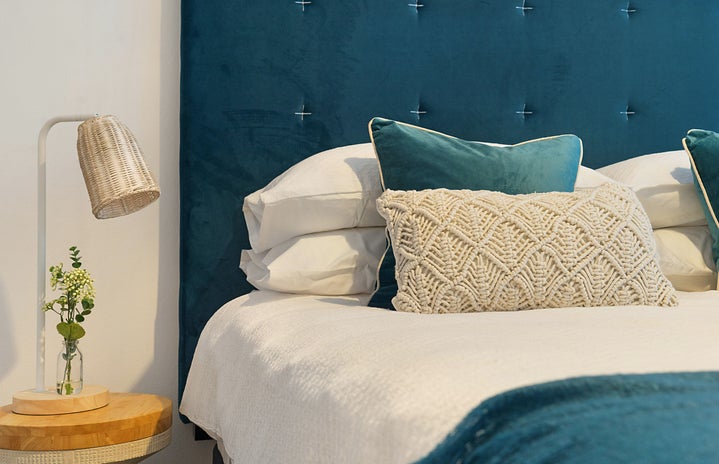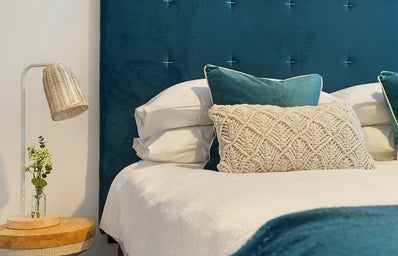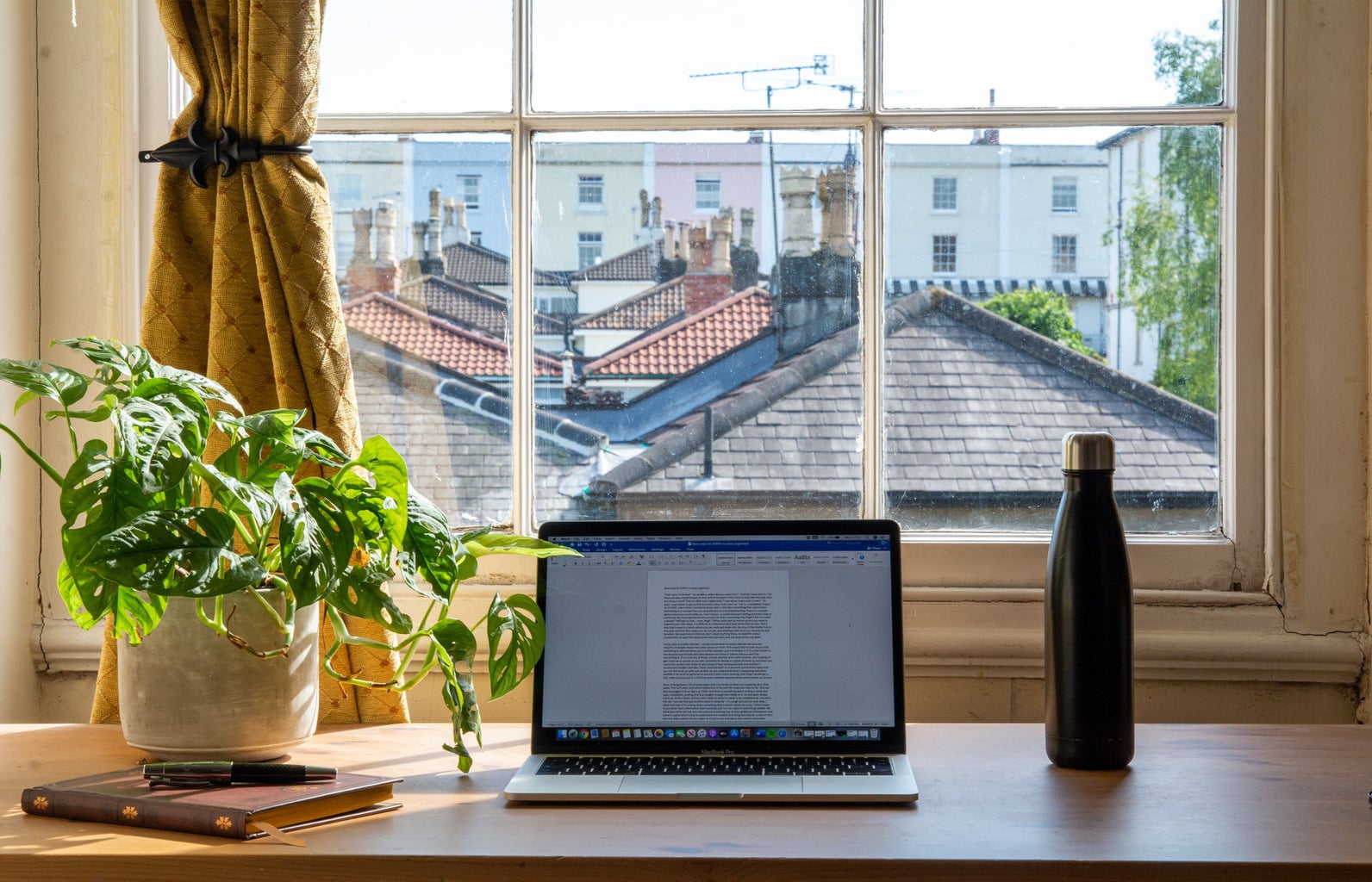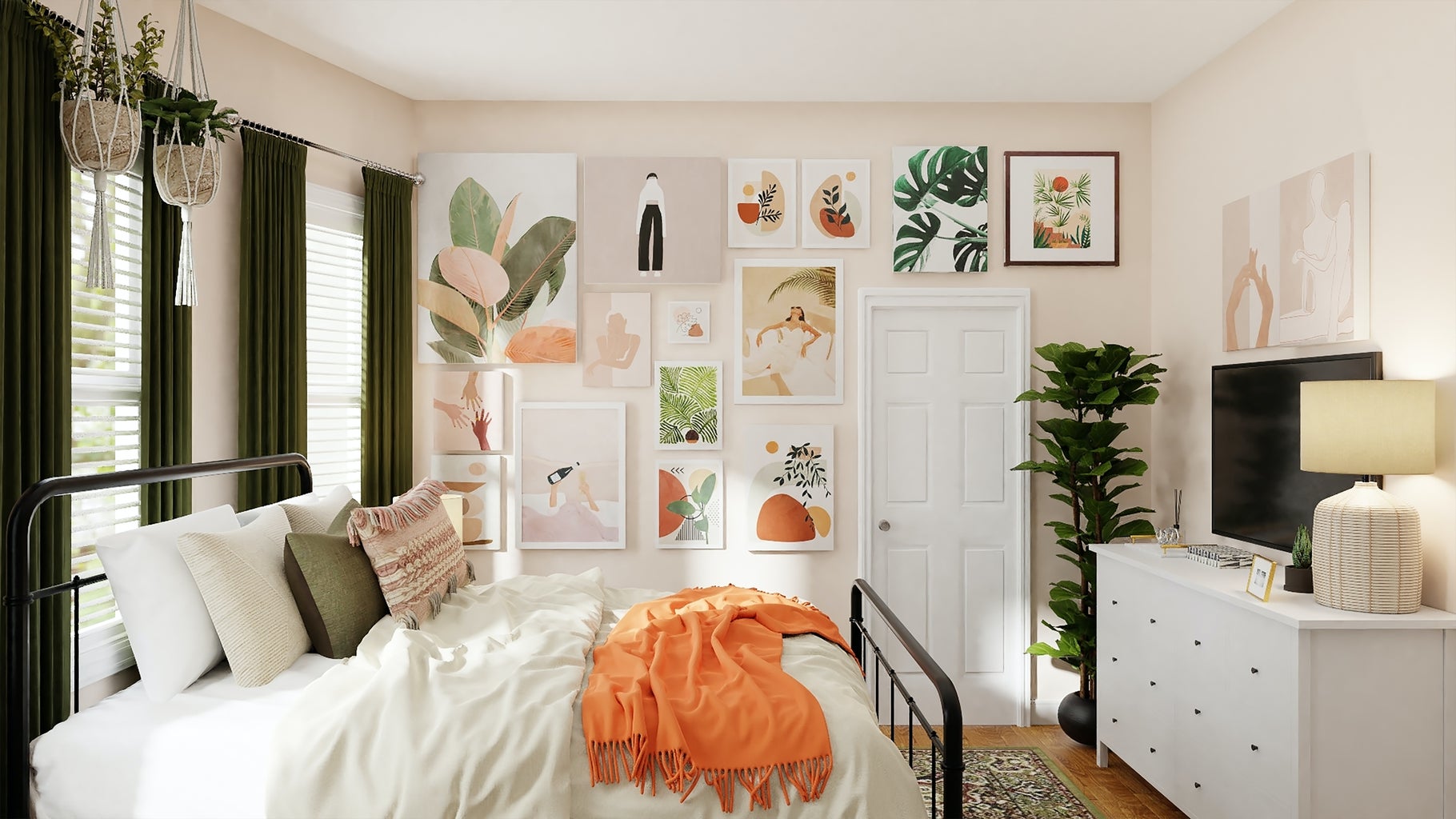Have you ever wondered what makes your room feel truly homely? Why is it that clearing our heads becomes easier when we clear our rooms, too? Why does the color of walls or how many plants you have in your personal space matter sometimes?
A large part of college life is spent studying and spending time in dorms and apartments, our home away from home. And these personal spaces provide us with more protection and comfort than what meets the eye. Although the connection between producing healthy architectural spaces has existed in India (vastu shastra), China (feng shui) and several other countries, the last decade has seen a boom in materializing this into research and application through environmental psychology. Not just homes but corporate rooms, clinics, prisons, etc. employ interior designers who use their keen eye for detail to incentivize the effects of décor on the brain and behavior.
SUNLIGHT
I personally love having my curtains drawn in the morning and letting some of that sunlight in. Back home, I have huge windows that let me feel connected to the outside world without making me feel too suffocated when I’m working. Sunlight directly affects our mood and can boost happiness. A fascinating study by Mohamed Boubekri et al. discovered how sunlight plays an inherently important role in work quality. Employees receiving considerable amounts of natural light in homes and offices outperformed workers receiving artificial light, who also showed signs of lack of enthusiasm and sleep deprivation.
art
Decades of psychological research have culminated into the understanding of the interaction between colors and emotional responses. You’ll notice how just looking at certain colors gives rise to different feelings. For example, people denote reds, yellows, and oranges as warm colors because they feel warmer in the presence of such colors. On the other hand, greens, blues, and purples are cool colors because of the opposite effect they have. Wendy’s, McDonald’s, KFC restaurants design and incorporate red in one way or another because of its attachment to appetite and hunger. The greenroom provided to actors and performers before a big show is associated with the calmness and balance of green.
Art is a great way to add this pop of color to your room! Professor Semir Zeki, a neurobiologist at the University College London, found that viewing art pieces gives the same delight as falling in love. It doesn’t have to be anything extravagant; if you’re on a budget like me, investing in colorful prints, cute wall-hangings or even pottery can have the same effect.
plants
Lastly, plants! If your home doesn’t have access to a lot of nature around you, dotting your room with green friends can help you stay connected to the environment and combat the sensory overload living in a city comes with. Moreover, studies have shown how even slight exposure to nature scenes aids people’s capacity to concentrate and process information. Whether it be vines around mirrors or along walls, filling white space with a tall houseplant, or opting for a plant cart, having splashes of green around the room can instantly add comfort and vitality to monotonous greys and browns. But, if you’re a careless plant parent with a hectic academic schedule (calling myself out here), low-maintenance plants are perfect for every college living space.
If you’re confused about how your home affects your mood, take a moment and inspect each nook and cranny as you’re reading this. Even a little bit of reorganization or adjustment can switch up the tones of your room, making you truly relaxed and secure.
Can’t get enough of HC UMass Amherst? Be sure to follow us on Instagram, listen to us on Spotify, like us on Facebook, and read our latest Tweets!




